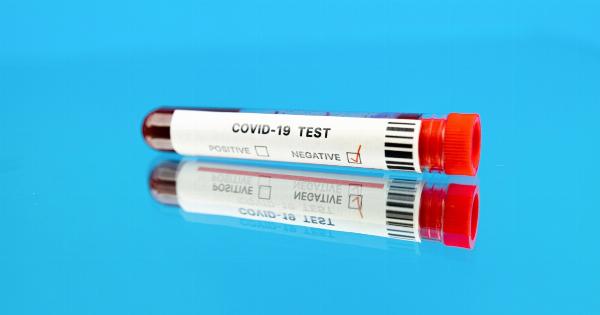Deciding whether it is time to take a pregnancy test can be an anxious and exciting moment for many women.
Whether you are actively trying to conceive or just suspecting a possible pregnancy, it is essential to recognize the signs that indicate it might be time to pick up a pregnancy test. While the only way to confirm pregnancy accurately is through a test, these 10 signs can help guide you in determining whether it is likely to be positive. Read on to learn the most common indicators of pregnancy.
1. Missed Period
A missed period is often the first and most obvious sign of pregnancy that prompts women to consider taking a test. If your period is usually regular and you have missed it, it could be a strong indication of pregnancy.
However, it is important to note that other factors, such as stress or changes in your routine, can also cause a missed period. Therefore, it is crucial to consider additional symptoms as well.
2. Breast Changes
One of the early signs of pregnancy is breast tenderness and changes in the breasts. You might notice increased sensitivity, soreness, or heaviness in your breasts. The breasts may also appear swollen, and the nipple area might darken.
These changes occur due to hormonal shifts in the body and the preparation of the breasts for breastfeeding.
3. Nausea and Morning Sickness
Nausea, often accompanied by vomiting, is commonly associated with pregnancy and is referred to as morning sickness. While it can occur at any time of the day, it is most prevalent in the morning.
The exact cause of morning sickness is unknown, but hormonal changes and increased sensitivity to smells are believed to contribute to this symptom.
4. Fatigue
Feeling extremely tired or fatigued is another early sign of pregnancy. The hormonal changes taking place in your body, coupled with increased blood production, can make you feel much more tired than usual.
If you find yourself needing more sleep or feeling exhausted despite getting adequate rest, it may be a sign that you should consider taking a pregnancy test.
5. Increased Urination
If you find yourself needing to urinate more frequently than usual, it could be a sign of pregnancy. The increased blood flow to the kidneys and pelvic region leads to an increased urine production.
Additionally, as the uterus expands, it puts pressure on the bladder, causing you to feel the need to urinate more often.
6. Food Cravings or Aversions
Food cravings and aversions are common during pregnancy. You may suddenly develop a strong desire for certain foods that you previously had no interest in or experience a strong aversion to foods you once enjoyed.
These changes are believed to be influenced by hormonal fluctuations and can vary from woman to woman.
7. Mood Swings
Hormonal changes during pregnancy can significantly impact your emotions and mood. Many women experience mood swings, ranging from sudden bursts of happiness to feelings of sadness or irritability.
If you find yourself experiencing intense and frequent mood swings, it may be an indication that you should consider taking a pregnancy test.
8. Increased Sensitivity to Smells
If you suddenly find yourself repulsed by strong smells or more sensitive to odors, it could be another sign of early pregnancy.
Many women report heightened sensitivity to certain scents or an increased ability to detect smells they hadn’t noticed before. This change is caused by hormone fluctuations, particularly estrogen.
9. Frequent Headaches
Headaches are a common occurrence during pregnancy, mainly due to hormonal changes, increased blood circulation, and changes in blood pressure levels.
If you are experiencing more frequent headaches than usual, it could be worth considering a pregnancy test, especially if it is accompanied by other pregnancy symptoms.
10. Abdominal Bloating and Cramping
Abdominal bloating and cramping are common symptoms associated with pregnancy. You might experience bloating, similar to what you might feel before your period.
Additionally, you might notice mild cramping or twinges in your lower abdomen as the fertilized egg implants itself into the uterine lining.
While these signs can provide a good indication of pregnancy, it is essential to remember that they are not foolproof. The most reliable way to confirm pregnancy is by taking a pregnancy test or visiting a healthcare professional for a blood test.
These tests measure the hormone human chorionic gonadotropin (hCG) in your body, which is produced during pregnancy.
If you are experiencing several of these symptoms or have a combination of primary signs such as a missed period, breast changes, and nausea, it is recommended to take a pregnancy test.
Remember to read the instructions carefully and use the test correctly for accurate results.
Keep in mind that even if your pregnancy test comes back negative and the symptoms persist, it is advised to consult a healthcare provider to rule out any underlying health conditions or to discuss possible explanations for your symptoms.






























